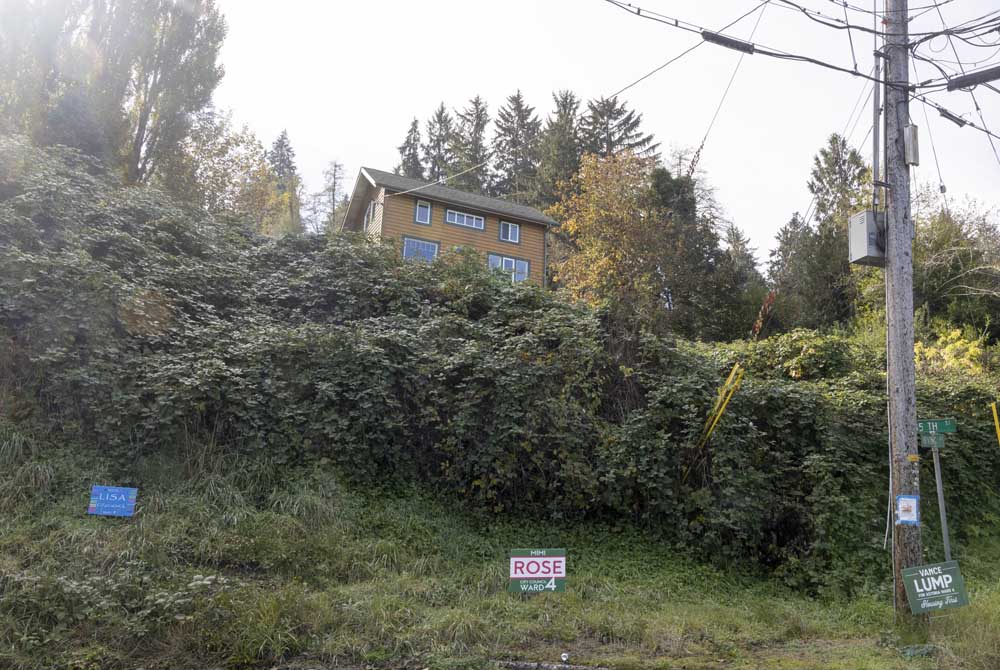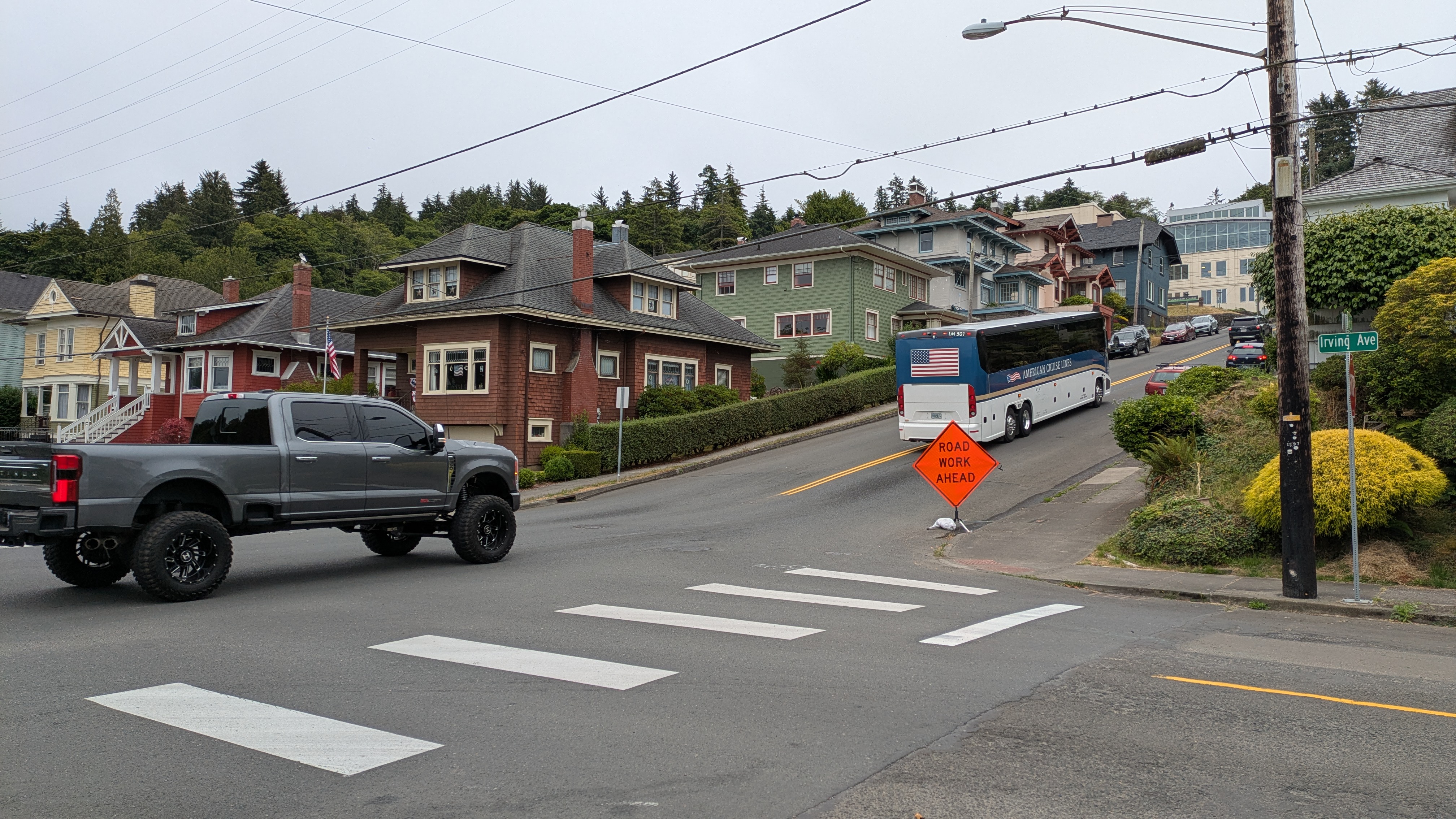Our View: Housing is a critical policy issue
Published 12:30 am Thursday, October 31, 2024

- Three candidates are competing in the east side’s Ward 4 for the Astoria City Council.
Back in 2016, The Astorian published a series of stories on housing.
Trending
The series opened with a stark assessment: “Clatsop County has a housing crunch that touches all income levels, from low-wage workers to six-figure executives, from renters just starting out to would-be homeowners looking to plant roots.
“The shortage has no easy solutions, in part because it arose from a perfect storm of trends.”
While the North Coast has seen pockets of progress and signs of hope over the past several years, we feel that same assessment could still be published today.
Trending
The Joint Center for Housing Studies at Harvard University found in a report released this year that 43% of renters in our region were cost-burdened and 24% were severely cost-burdened in 2022.
The report defined cost-burdened as households that spend 30% of their income on rent and utilities. Severely cost-burdened households spend 50% of their income on housing.
The median sale price for a home in Clatsop County is in the $535,000 range and the choices are limited, factors that put home ownership out of reach for many middle- and lower-income households.
Beyond the data, anyone who has lived here for any length of time has probably heard a personal anecdote of the struggle to find adequate housing, a challenge that can influence employment opportunities and family decisions.
We were careful back in 2016 not to conflate the housing crunch and homelessness, since the root causes of homelessness can include drug and alcohol abuse, mental illness and other issues. But the lack of transitional, supportive and low-income housing are barriers in a county that has had among the highest per-capita rates of homelessness in Oregon.
Against this backdrop, we believe it is appropriate that housing is a pivotal theme among candidates for the Astoria City Council in the November election.
Andrea Mazzarella, a real estate agent, is unopposed in Ward 2, which covers the South Slope and parts of Uniontown. Mazzarella, who is active in the Astoria Housing Alliance, an advocacy group, has described affordability and livability for the working class as the biggest challenges facing Astoria.
Vance Lump, the owner of Astoria Wood Windows and the vice president of the Astoria Housing Alliance, has made “housing first” the centerpiece of his campaign in Ward 4, which covers Uppertown, Alderbrook and Emerald Heights.
In contrast, Mimi Rose, a commercial building owner downtown with a background in banking, has cautioned against “housing for just the sake of housing, at the total disregard for parking, for the ability to get around downtown.” She was a vocal opponent of a workforce housing proposal with a supportive housing component at Heritage Square. She has suggested Emerald Heights and Tongue Point as potential locations for housing.
Lisa Morley, a retired behavioral health consultant, has recognized the need for affordable options but believes Astoria should not build any more housing beyond the population of roughly 10,000 people given overburdened infrastructure and traffic concerns.
On our Opinion pages in recent years, our preference is for nonpartisan local boards and commissions to function kind of like a jury: open-minded, objective and drawn from a cross section of the community.
Single-issue candidates give us pause. We value a broader outlook and the judgment necessary to weigh the many, often unexpected, policy questions that come up over a four-year term.
Yet, as Lump has pointed out, housing can be the catalyst for so many other issues.
The City Council has made housing a goal over the past several years. In a five-year work plan adopted earlier this year, “Housing for All Astorians” was one of the primary themes, with an emphasis on workforce and market-rate housing.
“A focus on housing that can be afforded by wages earned in Astoria’s local economy is a critical path,” the work plan stated. “It is also vital for the sustainability of businesses operating in Astoria that depend on an available and stable workforce.”
Mayor Sean Fitzpatrick also invited a reaction on housing when he declared in September 2023 that he wanted to “change the narrative” and shift more focus toward home ownership opportunities. Fitzpatrick, who owns Wecoma Partners, has extensive experience in real estate sales, development and management.
With his platform as mayor and his professional expertise, Fitzpatrick’s words carried weight and set a tone at City Hall.
But it does not take a housing expert to know that the pain in our region’s housing crunch is felt most acutely by lower-income working people who scramble for rental options. These are people whose voices are rarely heard at City Council and who lack the political leverage to keep a focus on affordable and workforce housing until more progress is made.
Our City Council will soon have two new faces — maybe three, if City Councilor Andy Davis is elected to state House District 32 in November and a vacancy is filled by appointment. We hope they fully embrace the idea of “Housing for All Astorians.”









